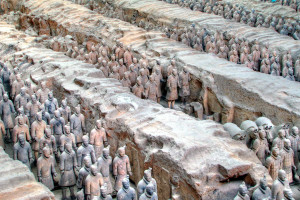 I’m a Creativity Warrior. Over the past few years, I called myself a Creativity Architect, then Creativity Agent, then Creativity Actuator. During that time, I got a broader view of the wobbly state of creativity of individuals and in business, and decided those titles were insufficient to represent my mission and justify my tag line “When Creativity Is Unlocked, Extraordinary Happens.” I realized it will take a warrior mindset to unlock creativity and enable extraordinary to happen; then it will be fun and easy and remarkable!
I’m a Creativity Warrior. Over the past few years, I called myself a Creativity Architect, then Creativity Agent, then Creativity Actuator. During that time, I got a broader view of the wobbly state of creativity of individuals and in business, and decided those titles were insufficient to represent my mission and justify my tag line “When Creativity Is Unlocked, Extraordinary Happens.” I realized it will take a warrior mindset to unlock creativity and enable extraordinary to happen; then it will be fun and easy and remarkable!
Typically, the word “warrior” evokes “battlefield warrior.” Most of us have no experience as a battlefield warrior and don’t have the experience of putting our lives on the line. I’ve learned that what makes a warrior a warrior is not how aggressive or competitive one appears to be on the outside. Being a warrior is about who one is being on the inside that enables them to perform full-out, all-in, in an extraordinary way.
To better understand the concept of “warriors,” I did some research on the greatest warriors in history who battled between the 6th Century BC and 17th Century. People like Sun Tzu, Attila the Hun, Julius Caesar, William Wallace (aka Braveheart), Richard the Lionheart, Alexander the Great, Miyamoto Musashi, and more. They committed a lot of killing, bloodshed, and violence. They inspired terror and were merciless on the battlefield. Some were thought to have super powers. They also are described as bold, brave, daring, disciplined, fearless, and relentless. Their mission was about defending or conquering territories, or consolidating and ordering their empires. They were victorious on the battlefield and sometimes the last to die on the front lines.
Two of those warriors wrote books about battlefield strategy, tactics, and philosophy that are still used today in corporate and military training, and continue to have an impact on both Western and Asian culture. Sun Tzu who lived in the 6th Century BC, was a Chinese military specialist, general, strategist, and philosopher who wrote The Art of War. Miyamoto Musashi, who lived in 17th Century, was a skillful Japanese swordsman (considered by many to be the best who ever lived) and an invincible samurai who wrote A Book of Five Rings. They wrote about the importance of plans, tactics, strategies, methods, discipline, using each man according to his abilities, and the creativity and skill involved in pulling all the above together.
I also looked at current-day warrior (military) codes of conduct. The required qualities are: Adaptive, competent, confident, disciplined. The culture assumptions include: Mission first, never accept defeat, never quit, never leave a fallen comrade, serve with honor, be ready to lead, be ready to follow, take responsibility for your/your teammate’s actions, train for war, fight to win, excel through discipline and innovation, uphold the prestige, honor, and esprit de corps of your chosen profession, move further, faster, and fight harder than any other Soldier, keep mentally alert, physically strong, and morally straight, shoulder more than my share of the task whatever it may be, one hundred percent and then some. The values are: Loyalty, respect, selfless service, honor, integrity, personal courage. All are powerful attributes on and off the battlefield.
A couple of years ago, I learned the term “VUCA” in a presentation about a mindfulness project conducted with the Army Rangers. It’s a military term used to describe battleground conditions. It means Volatile, Uncertain, Chaotic, and Ambiguous. The presenters pointed out that business people were using the same terms to describe business conditions. I hadn’t heard the acronym but I recognized that those words were (and still are) used consistently in magazine articles, studies, reports, and blogs about the complex and disruptive business challenges. High employee disengagement numbers indicate that substantial individual creative resources (potential Creativity Warriors) are unavailable. What do people in business depend on to resolve challenges? Personal Creativity. Who is best suited to perform in battleground conditions? Warriors. Challenges are the fuel of creativity. Creativity Warriors will take on those challenges. BTW, in the Zulu language, VUCA means “to be awake.” When are we going to heed this wake-up call?
What is the Creativity Warrior’s battle?
- The external challenges of a VUCA environment
- The internal barriers and obstacles that suppress, obstruct, inhibit, and undermine their natural capabilities (creativity) needed to meet those challenges
Why is the Creativity Warrior battling?
- To make a difference
- To access their potential, to understand their super powers, and use them
- To increase confidence, well-being, engagement, productivity, resilience
- To increase ideation and the quality of ideas to fuel innovation
- To increase effectiveness of interactions, efficiency, quality of decisions, self-direction, self-motivation, speed of decisions
- To increase alignment, engagement, harmony, risk tolerance, trust
- To improve business results and overall prosperity
How does the Creativity Warrior battle?
- Exploring, practicing, and integrating their qualities of personal creativity that ignite a self-perpetuating cycle of confidence, communication, collaboration, contribution, and community for all who participate
Where is the battlefield?
- Personally, everywhere
- In business, “everywhere” is 5 domains: People, Products/Technology, Processes, Environment, Business Results
When do battles occur?
- Anytime, in the face of challenges and questions
How does the Creativity Warrior battle?
- Awake
- Focused
- Self-aware
- Self-confident
What are the Creativity Warrior’s weapons?
- Personal VUCA – Vision, Understanding, Clarity, Acuity
- Personal creativity qualities
- Personal creativity process
- Mindset
- Brain
What is victory to the Creativity Warrior?
- Living purposefully
- Nourishing relationships
- Stress-free living
- Balance
- Alignment of personal, professional, and organizational purpose and vision
- Co-creativity among colleagues
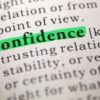 Leaning In and Falling Over Conventional Wisdom
Leaning In and Falling Over Conventional Wisdom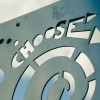 You Choose: Creativity or Commodity?
You Choose: Creativity or Commodity?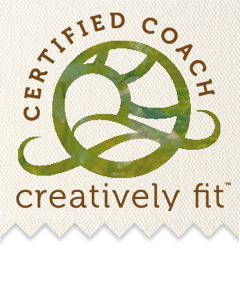
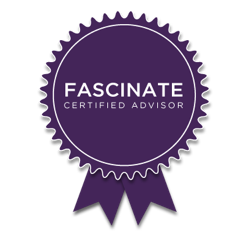


Leave a Reply